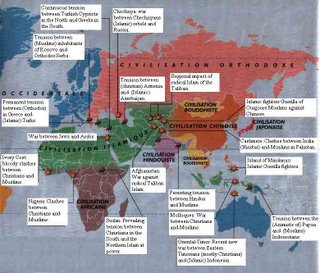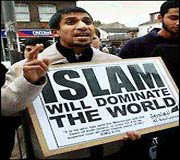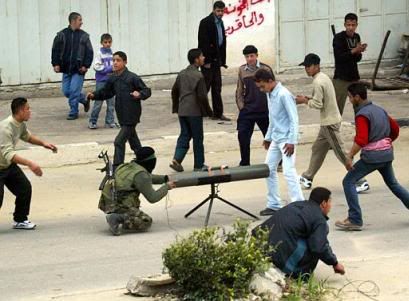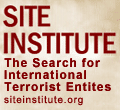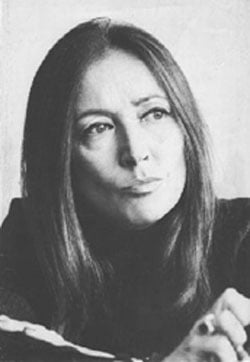Monday, July 14, 2008
(Arab Muslim dominated) OPEC's policies spurring price hike
Dailyrecord.com, NJ - Jul 5, 2008
While it is true that the United States gets most of its oil from non-Arab countries, it is in fact the Arab oil-producing nations that are driving up the price.
He states that the "price of oil is dictated to a large extent by U.S. oil companies." That is not the case.
OPEC, the Organization of Petroleum Exporting Countries, is a cartel of 12 member nations, with all but one, Venezuela, a Middle Eastern country. A cartel is, according to the American Heritage Dictionary, a combination of independent business organizations formed to regulate production, pricing and marketing of goods by the members. OPEC has for the first time since its creation in 1960 been acting like a real cartel. Formerly, cartel members would ignore regulated production goals established and pump more oil. More oil meant more supply.
The larger supply would keep the price down worldwide. Now we are seeing member nations holding firm to established production goals. In other words, while everyone, including President Bush, is asking them to produce more, they are not. The cartel is working.
The concepts of supply and demand are not sexy, but they certainly apply to the price of gasoline.
We learned in Economics 101 that price balances the supply to the demand. Look at it this way: Local farms are now harvesting their strawberries. One way to get these strawberries sold instead of going rotten is to lower the selling price. The local supermarket will sell many more quarts of strawberries at $2.50 as opposed to $3.99. The farmers might get a lower price, but they are not left with rotten fruit. Everyone wins in this scenario: Consumers get a lower price and farmers sell their harvest.
Would the local supermarket have any strawberries in stock in October if the price remained low when the supply from South America was one quarter what it is now? Go to the head of the class if you say your local supermarket would not have any strawberries in stock if the price was $2.50. They would sell out too quickly for the inventory to be replenished.
OPEC produces almost 36 percent of the world's oil. When any organization or company or country controls over a third of production, it effectively controls price. All one has to do is look at how Medicare/Medicaid price fixing has affected upward the cost of medical care to understand this.
Couple OPEC's regulated supply with the growing demand for oil worldwide and you see something discussed in your Economics 101 class: When demand goes up and supply does not change, the price will go up. It doesn't matter if you are talking strawberries or oil. Since 1999 worldwide demand for oil has grown 13 percent, led by the increased demand from China and India, both of which have almost doubled demand in that period.
So while it is true the Arab oil-producing nations are not the United States' majority supplier of oil, a group of them, OPEC, does produce over a third worldwide, thus significantly affecting the price worldwide. Maintaining cartel supply production goals has driven worldwide prices up. We do not live in a vacuum; there are other countries using oil and other producers, OPEC for example, supplying to the worldwide market.
It is true when Assaf says "(a) solution to skyrocketing gas prices is to for each of us to use less fuel"; I wonder if he means China and India as well?
Supply and demand is not a sexy topic, but these concepts affect life every day and have done so for centuries. Investments in U.S. Treasury bills do not set price; the balance between supply and demand does.
Mike Sabella is a resident of Budd Lake.
http://www.dailyrecord.com/apps/pbcs.dll/article?AID=/20080704/OPINION03/807040302/1096/OPINION
Technorati - Freedom 911 Al Qaida Al Qaeda Al Qaida Bin Laden Islamofascism Islam Apes and pigs Terrorism Terrorist oganization Hamas 'palestinians' Al Aqsa Alaqsa Muslims Christians Jews Arabs bombing Infidels Israel US Security Jihad War on Terror Iraq Iran Muslim control OPEC Euro Dollar Arab control Oil lobby Oil Mosque Foreign policy West non Muslims Democracy Venezuela Saudi Arabia Islamic Threat Nukes UAE Islamists
Labels: arab oil, economy, energy, oil, OPEC

